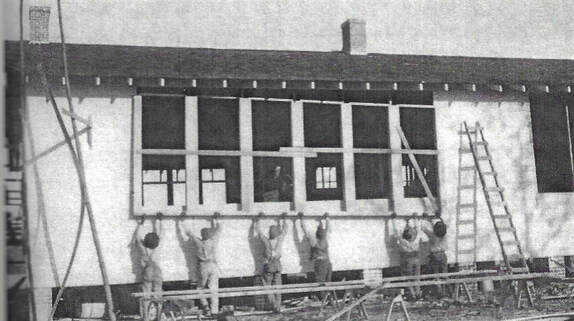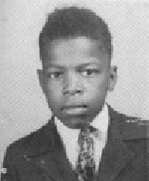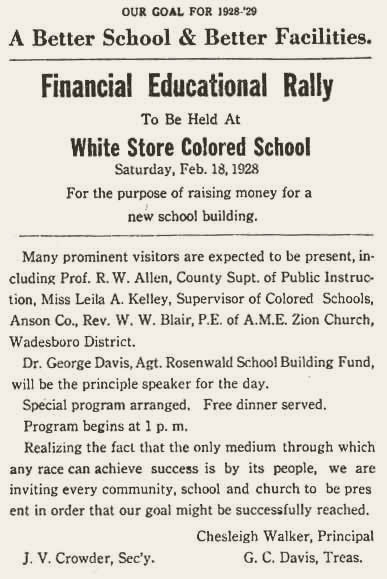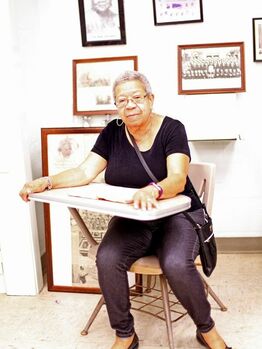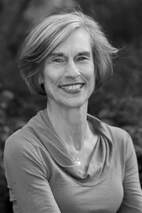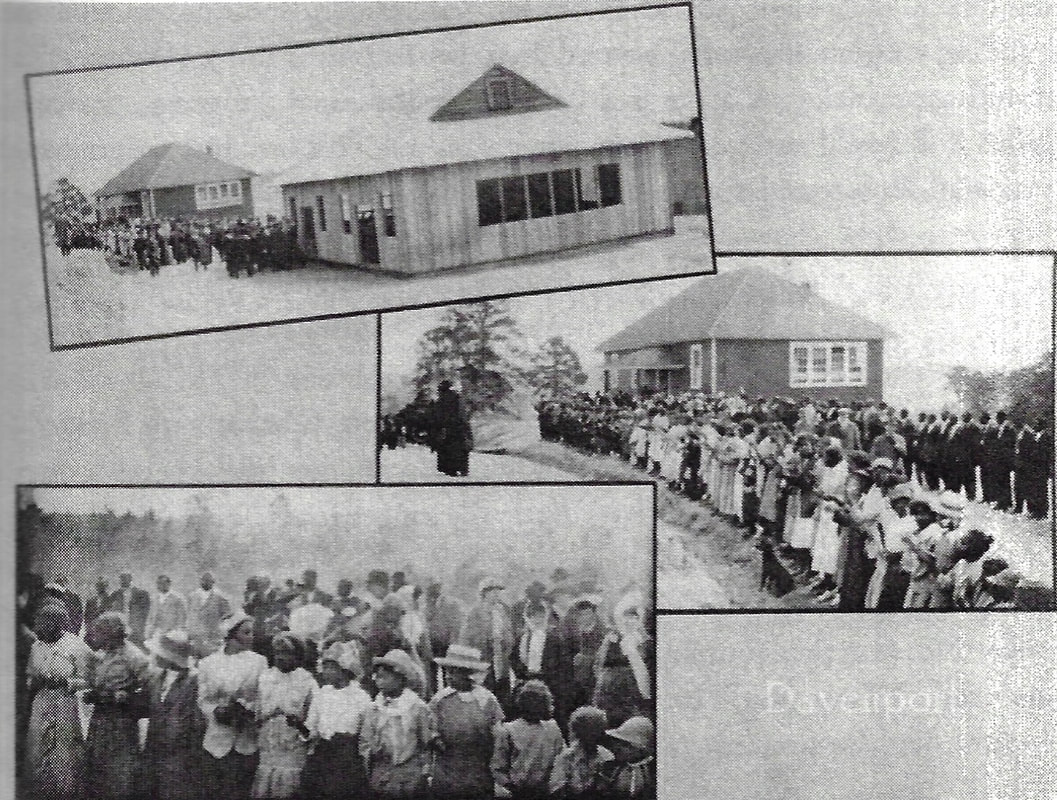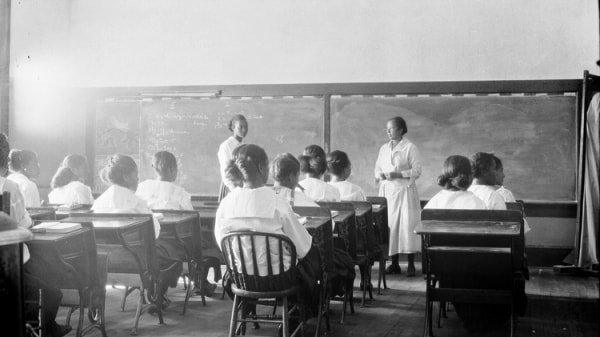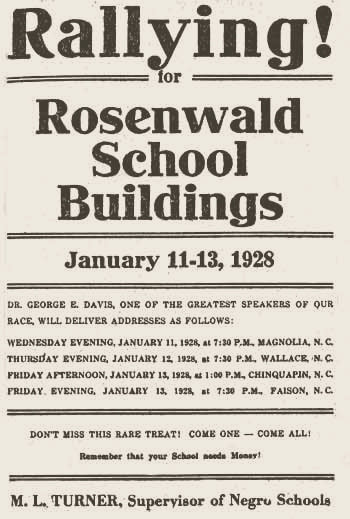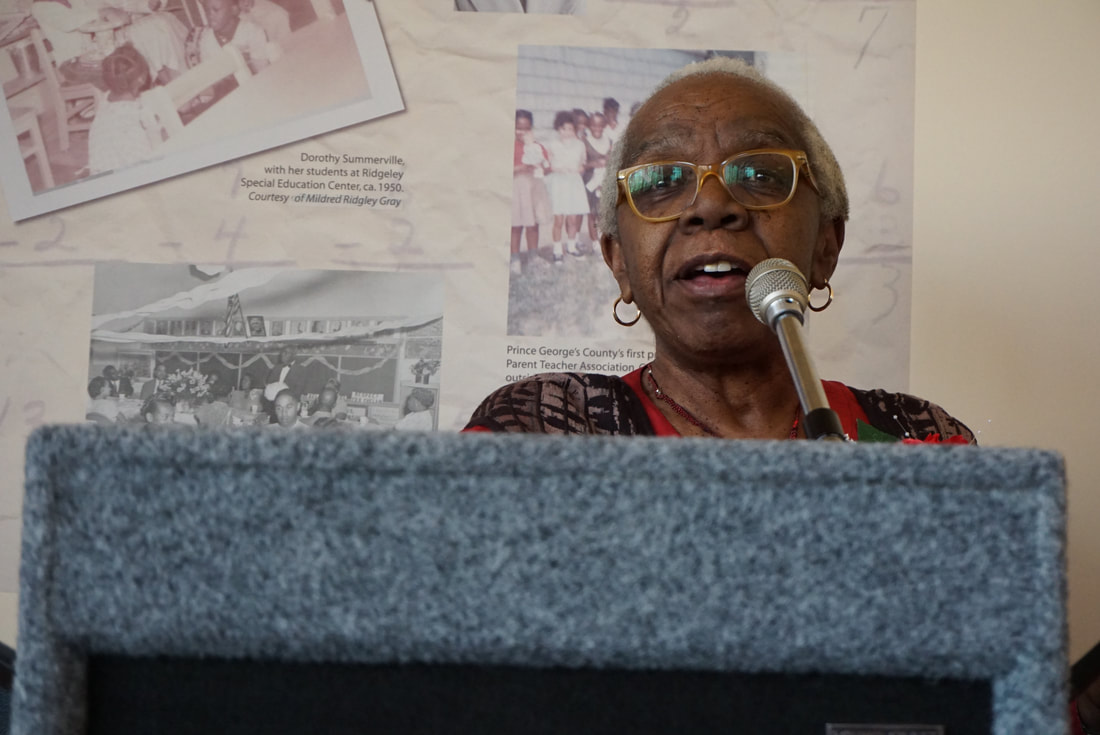"I have never seen a set of people who have changed so much within recent years from a feeling of almost despair and hopelessness to one of encouragement and determination." - Letter from Washington to Rosenwald after visiting the new schools. [39] |
Gregg, Texas, 1921. Hoffschwelle, The Rosenwald Schools.
|
|
"I was absolutely committed to giving everything I had to bettering myself in the classroom. I had no doubt that there was a way out of the world I saw around me and that this was the way. My parents, like most poor black parents of that time, agreed. To them, education represented an almost mythical key to the kingdom of America’s riches, the kingdom so long denied to our race.” - Congressman John Lewis, Rosenwald School Graduate [40] Photo, 1951, Lewis
|
Partnering with the African-American Community
|
"It was all family. Everybody was involved. School was a big part of the community. Anything that was going on, the whole community participated. It was a family – a family." - Charlotte Redd Wood, November 2, 2016. Calello. [42]
|
Both Rosenwald and Washington believed the community should be involved in building and raising funds for the schools.
"One thing I am convinced of, and that is that it is the best thing to have the people themselves build (school)houses in their own community. I have found by investigation that many people who cannot give money would give half a day or a day's work and others would give material in the way of nails, brick, lime, etc." - Booker T. Washington, letter to Rosenwald, 1912. [41]
African-American communities across the South rose to the challenge and, using Rosenwald's matching grant, created schools for their children in which they felt enormous pride.
"You do not know what joy and encouragement the building of these schoolhouses has brought to the people of both races in the communities where they are being erected." - Letter from Washington to Rosenwald in 1913, as the first schools were being constructed. [43]
They used every means possible - from donating the land to fundraisers to providing labor as in-kind donations - to leverage Rosenwald's grant and build schools for their children.
"I love the fact that what Julius Rosenwald did was give seed money. And that the way that they operated, it opened the opportunity for the community to actually contribute and be a part of it. I love that partnership because it was not just between the two of them, it was between them and the community. And that the people in the community, particularly the poor black people in rural areas, who didn't have much anyway, had an opportunity to actually have something, and be proud of it, and help build it. I just think that's awesome." - La Verne Gray, Rosenwald School graduate [44]
[Click below to hear the audio clip] In the community of Long Ridge, people felt the school belonged to them, and represented not just an education for their families, but a doorway to equality for their children. The building, pictured above, still stands, a reminder of African-Americans' long struggle for equal rights. [45]
 Pine Grove Rosenwald School, North Carolina, 1936. Dobrasko. Pine Grove Rosenwald School, North Carolina, 1936. Dobrasko.
"I think one of the most important legacies of the schools is the idea of community. That communities working together can produce an awful lot, and communities decide what they want and what they need." - Stephanie Deutsch [46]
[Click below to hear the entire clip.] |
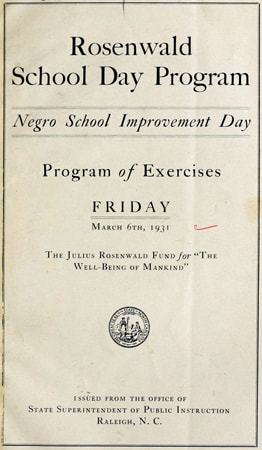 1931, Martin. 1931, Martin.
|
